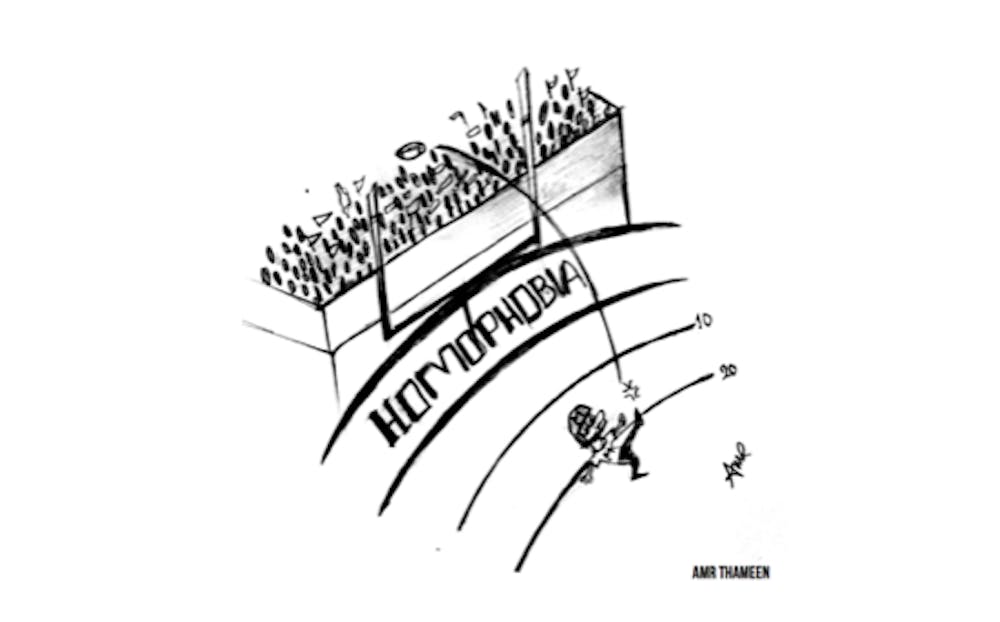You cannot use the word “faggot” and not mean it offensively. You cannot say “no homo” around your friends and say it doesn’t matter because none of you are gay. You cannot claim that because “some of your best friends are gay,” that you are an ally. Last Tuesday, Queers & Allies and the SGA Athletic Committee co-sponsored an event to combat these issues in athletics entitled “Homophobia in Athletics”. The event, inspired by Wade Davis’ recent talk at the College, drew 97 student athletes.
Sixty percent of our student body is involved in athletics, either at the club or varsity level. As such a large part of our school, Middlebury needs to utilize this arena to investigate and combat homophobia. As athletes make up such a large portion of the student body, they are in a unique position to lead the way in fighting homophobia. An event like this is not meant to blame athletes for having a higher incidence of intolerance than the rest of us. Whether they do or do not is something too intangible to measure. But these discussions are good in themselves, for any large group of people.
By telling stories about their own sexualities, organizers Katie Linder ’15 and James Clifford ’14.5 set an honest tone for the event. Splitting into small groups separated from teammates furthered this goal by creating a non-judgmental environment. This format countered the traditional large panel or classroom discussions that set a high barrier to entry in such personal conversations, similar to JusTalks or Midd Uncensored. In a year where the community has struggled for productive conversations, this should set a precedent for future discussions.
We recommend that this event, or similar events, become a regular, yearly occurrence. Students turn over every four years, but homophobia carries on and is not a problem that will be resolved in a day. The admirable student leaders of this event will not be here forever, and it falls to the administration and younger student leaders to pick up where they left off.
Such facilitated conversations should reach more students. For starters, suggesting two players from each team attend is too small a sample. Five members, or even a percentage of a team, should have to attend. They should then bring the discussion back to their teams to make sure the conversation doesn’t end in that room. These discussions could occur when coaches are not around so the discussion can be as honest as possible. One way to integrate this is to have coaches dedicate the first part of practice to discussing homophobia the day after the event.
Coaches should also take themhelm in combating homophobia on their teams. No efforts will be truly effective until coaches recognize and assume their role. While coaches are not necessarily part of the “locker room” culture, they are responsible for making their teams a safe space and must be attuned to the many ways homophobia can manifest. To jump start this, the athletics department should run a similar workshop just for coaches, emphasizing their role in this effort.
This event was student run and no coaches, administrators or faculty members were present. While this presents an opportunity for unprecedented openness among athletes, the athletics department needs to play a more active role. A similar event with a larger audience and some level of participation from the athletics department should happen every year. It should also be extended to other student organizations. Homophobia does not exist solely in athletics.
Homophobia is not a problem that goes away overnight. Combating it requires constant vigilance and increased awareness, and this duty does not fall solely onto the LGBTQA community. For both homophobia and other discriminatory issues on this campus, this format of discussion spreads the responsibility to where it should fall — to all members of the Middlebury community regardless of identity.
Artwork by AMR THAMEEN



